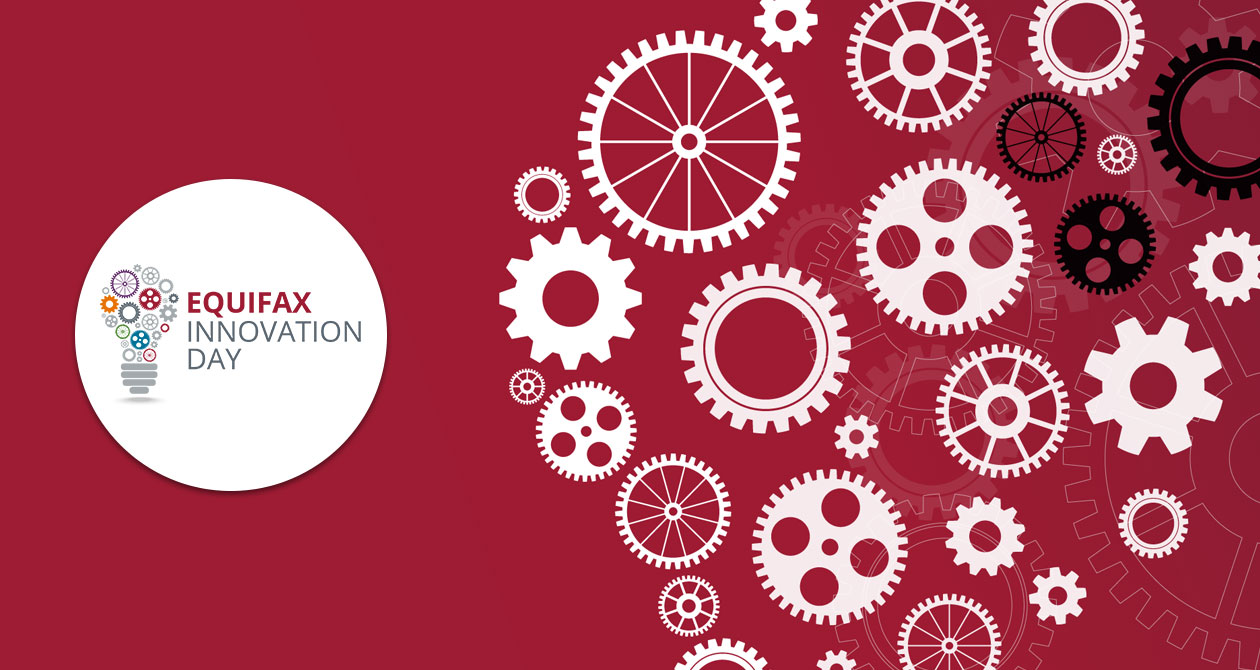How Equifax Uses AI
For nearly a decade, Equifax has led artificial intelligence (AI) innovation, starting with the introduction of the first machine learning credit scoring system that provides logical, actionable reason codes to help consumers understand the ‘why’ behind credit decisions.

For nearly a decade, Equifax has led artificial intelligence (AI) innovation, starting with the introduction of the first machine learning credit scoring system that provides logical, actionable reason codes to help consumers understand the ‘why’ behind credit decisions.
As of February this year, we hold over 90 patents in AI and machine learning focused on decision-making models and fraud prevention. Our proprietary data at scale, combined with our advanced data fabric powered by Equifax Cloud™, gives us a significant advantage in creating more predictive multi-data models, scores and products for better decision-making.
The Equifax Cloud is custom-built to handle the large volume of diverse datasets required to maximise AI performance in risk modelling, identity and fraud prevention. At the core is our custom data fabric, which unifies data from siloed sources and facilitates the keying and linking of data assets for faster, smarter insights.
Helping more consumers establish credit histories
Kari Mastropasqua, Chief Decision Intelligence Officer at Equifax explains that one key benefit of AI innovation is giving consumers greater access to credit. “AI has been central to our purpose of helping people live their financial best by driving the innovation necessary to capture a fuller picture of financial behaviour”, she says. “We have found that extending existing views of consumers to non-traditional data can improve credit decision outcomes for greater financial inclusion.”
“Not every Australian has a credit score or understands their credit score, which limits their access to the financing they need”, she explains. “We estimate there are around 2.5 million consumers with limited credit information. By incorporating alternative data sources beyond the credit file and using AI, we’ve reduced this gap by 15%, helping more consumers reach their financial goals.”
2024 Innovation Day Wrap Up
Other key benefits of AI include solving customer challenges and creating growth opportunities. This Wrap Up of our 2024 Innovation Day, held earlier this year at our Sydney headquarters, explains some of the ways we’re using AI to assist customers.
Mark Begor, our Global CEO, opened the event, kicking off an afternoon of learning, discussion and collaboration. Here are key takeaways from the interactive sessions led by Equifax subject experts.

Session #1: Decision Intelligence - Applied AI Innovation
By Kevin James, Chief Solution Officer, Equifax & Warren Du Preez, Senior Data Scientist, Equifax
Kevin and Warren discussed the role of decision intelligence in strategic business choices. Decision intelligence uses data science, AI and machine learning, augmented by human expertise, to turn insights into smarter decisions.
Key Takeaways:
- Hybrid intelligence: The combination of proprietary AI techniques, differentiated data and human expertise creates a powerful hybrid intelligence environment at Equifax. This collaboration of human and machine intelligence is critical to enabling smarter decisions centred around customer-driven objectives.
- Keying and linking with Data Fabric: Moving to the Equifax Cloud™ has enabled flexible, streamlined access to differentiated data through our custom data fabric. A key benefit of data fabric has been the development of keying and linking as a service. For companies with disconnected data, our keying and linking solutions use advanced analytics and AI to link disparate data for a 360-degree customer view and a single source of truth.
- Data quality: The quality and breadth of Equifax data assets are critical for training effective AI models. Our ongoing efforts to expand and maximise the value of these assets allow for deeper insights, enhanced by tools like graph databases that examine complex networks of relationships between data entities.
- Explainable AI: Our development of explainable AI (XAI), including Neuro Graph Decision Technology (NGT), ensures AI-driven decisions are transparent and justifiable, providing accountability for decisions made.
Session #2: The Future of Digital Identity
By Brendan Watmore, Equifax Head of Digital and Channels
Brendan addressed the erosion of trust in the digital economy and the industrialisation of cybercrime. He discussed the Government's Trusted Digital Identity Framework (TDIF) and how AI-led innovation is helping businesses and consumers enhance trust and security.
Key Takeaways:
- Erosion of trust: The rapid digitisation of our economy has led to increased convenience, but has also weakened trust. Consumers, businesses, and even governments are grappling with the consequences of frequent data breaches, which has made trust more fragile than ever.
- Consumer demands: Consumers want confidence in their interactions with the economy and with each other. They are frustrated with scams, spam and sophisticated attacks from thieves.
- Digital ID Framework: Australia’s Digital ID Framework is set to reduce the need to repeatedly share personal information, aiming to restore trust and increase security in digital transactions. Equifax supports the framework and has actively contributed to the direction the legislation has taken.
- End-to-end solution: With over 20 services operating in the digital identity space, Equifax is innovating to facilitate a digital identity solution that consumers can use from the palm of their hand. Its wide-ranging functionality will include allowing users to update their identity as they earn new qualifications, verify their credentials when applying for a job and apply for finance with a live view of their credit score. All the while the user's identity will be constantly monitored for fraud protection.

Session #3: The Changing Fraud Landscape
By Tehani Legeay, GM Identity and Fraud Services, Equifax & Drew Beresford, Head of Solutions - Identity, Fraud & AML
Tehani and Drew highlighted the urgent need for businesses to strengthen their fraud prevention strategies. They discussed how the rapid digitisation accelerated by the pandemic has created new vulnerabilities, which criminals have exploited globally, and how Equifax is leading the way in addressing the threat from fraud and scams.
Key Takeaways:
- Fraud is increasing in complexity and frequency: Post-pandemic, sophisticated fraud tactics such as cyber attacks, identity theft, phishing and ransomware have surged. Mobile payment fraud is up 14% year-over-year, and account takeovers have increased by 8%, with associated chargebacks doubling in value. The consensus is that AI will continue to drive further increases in both the volume and sophistication of fraud and scam schemes.
- Collaboration and data sharing strengthens defences: Establishing industry-wide consortiums facilitates better intelligence coordination and data sharing, enabling businesses to combat fraud more effectively. Equifax was an early mover in creating a Fraud Focus Group, pooling and sharing confirmed fraud data. Our new Modern FraudCheck service substantially increases users’ ability to discriminate between good customers and bad actors at the point of application. And as Equifax develops its Exchange for scam data, organisations and consumers will be better able to protect themselves from fraudsters.
- A Global Fraud Risk Score is the future: We are creating a world where Equifax customers can connect to a global fraud data network through a single interface. This will allow businesses to select fraud data sources tailored to their business and compliance needs, conducting real-time searches and responding to threats throughout the customer lifecycle. Our global fraud risk score will incorporate Equifax data and analytics capabilities and provide continuous monitoring for both businesses and consumers.
- Technological investment and innovation are key: As fraudsters leverage advanced technologies, businesses must do the same. Since fraud can occur at any customer touchpoint, a layered, multi-pronged approach is critical. Equifax fraud assessment and identity verification tools use AI, multiple data points, and powerful trust signals to accurately assess risks and flag potential fraudulent activity, all while operating behind the scenes with minimal friction.
Session #4: Open Data - Our Global Journey
By Tonia Berglund, GM Product Strategy and Operations, Equifax
Tonia outlined the global breadth and experience Equifax has with Open Data, including Australia’s first product to market, Open Score. This product presents an opportunity for Equifax to improve financial inclusion for consumers who sit within the “thin file” credit market, where consumers can get a view of their financial health and ability to manage the cost of living via a single score out of 10.
Key Takeaways:
- Development of the Consumer Data Right (CDR): Significant updates to the CDR in 2023/4 include its expansion into the non-bank lending sector, requiring non-bank lenders to comply as Data Holders. The Bill has also been passed for Action initiation. Action initiation would create a new channel for consumers to instruct a business to initiate actions on their behalf and with their consent. These actions could include making a payment, opening and closing an account, switching providers and updating personal details (such as address) across providers.
- Reinvigorating CDR: The government is also exploring ways to increase takeup of the CDR by lowering the barriers to consumer adoption, including simplifying the consent process and revising data retention rules.
- Responsible lending: Open Data is instrumental in promoting responsible lending and financial inclusion by giving lenders access to a broader, more accurate range of data. This enables a more comprehensive creditworthiness assessment, extending credit to underserved populations while ensuring transparency, fairness and security.
- Opportunities for innovation: Australia's Open Data journey, spearheaded by the CDR, is gaining momentum. Of the 158 registered use cases, the most populated category is lending, credit and broking, followed by data testing, data analytics and insights, personal finance and payments. With our advanced analytics and experience in the UK’s Open Banking rollout, Equifax is well-positioned to help clients harness data to tailor products and services to customer needs.
- AI Integration: Equifax is continually advancing the use of Open Banking data to deliver new insights. Upcoming innovations include the development of products and services that streamline affordability, identify income, provide lifestyle insights and improve cash flow management. As the data matures, we see the potential for credit risk scores based on a blend of credit bureau and CDR data that provides a greater understanding of a consumer and their risk.
Contact Equifax to discover how our AI-led solutions can help your business enhance efficiency, improve decision-making, deliver personalised experiences, protect against fraud and increase customer lifetime value.
Related Posts

Mortgage demand hits four-year high as a second consecutive quarter of double-digit growth for credit cards is observed and most prominent among younger Gen Z’s.

The latest Equifax Business Market Pulse for Q4 2025 reveals a multi-speed recovery. Large businesses are leading the way on credit demand growth, with an observed increase in overall demand reaching heights of up to +19.4% (trade credit) in some sectors, such as hospitality.
